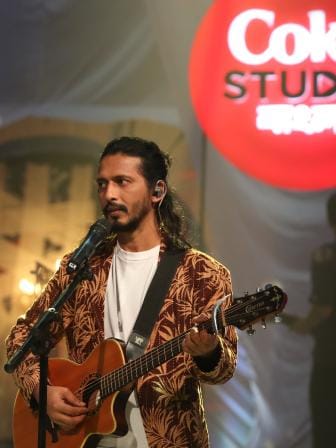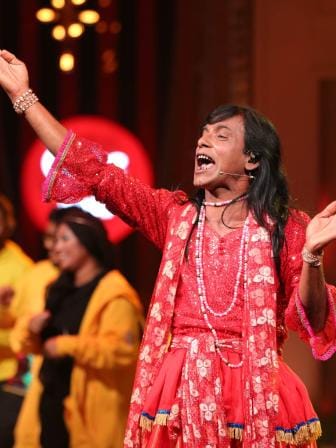Celebrating the languages of Bangladesh: Coke Studio Bangla at the forefront

The Language Movement of 1952 is the result of our country's fight to identify as a liberated nation. The present-day economy and culture of Bangladesh are also a consequence of the independence that our predecessors strived for. Our language transcends its role as a mere communication tool; it stands as an integral component of our rich history. As Bangladesh commemorates International Mother Language Day, the reverberations of its diverse linguistic heritage resonate far beyond its borders, underscoring its enduring significance on a global scale.
An influential catalyst within this cultural movement is Coke Studio Bangla, a platform that not only mesmerises audiences with its music, but also acts as a representative of the multitude of languages within the nation.

The show's impact of bringing mainstream attention to indigenous languages from Bangladesh is evident in the spread of the song "Nasek Nasek", featuring the Hajong language. Hajong is a local language that is spoken by only a few thousand people in Bangladesh including the show's season one rockstar Animes Roy.
The song's debut on Coke Studio Bangla sparked widespread interest, especially in shedding light on the Hajong community. Its popularity has not only increased curiosity about the Hajong language and community but also boosted tourism in the area.

Similar to "Nasek Nasek", the season two opener "Murir Tin" incorporated three native dialects: Sylheti, Khulna, and Chatgaiya. While these dialects were regionally prevalent, the song's popularity transcended boundaries, making these local languages part of the national fabric as people across the nation sang along to its cheerful melody.
While leaving a significant impact within Bangladesh, these songs also gained international recognition. "Nasek Nasek" notably became the sole Bangladeshi song played at an ICC World Cup match in Australia. Thousands of fans at the venue joined in singing along, creating a moment of unity that resonated with millions of viewers worldwide.

Coke Studio Bangla has sparked renewed fascination with Bangladesh's musical heritage, notably with "Kotha Koiyo Na". Following its release, there has been a surge in Google searches for "Maimansingha Gitika", a centuries-old collection of folklore. Moreover, the song has gained immense popularity in neighboring India, with thousands of Instagram reels featuring it.
The platform's channel boasts 400 million views, with a significant portion coming from various countries such as India, the US, Africa and so on. The hit song "Deora" even reached audiences in Tanzania, where popular TikToker Kili Paul lip-synced to its lyrics. Despite possibly not understanding the song's meaning, the music resonated so deeply that he began speaking Bangla words.

A YouTube search reveals numerous internationally renowned content creators reviewing these songs, all sharing a common query: how can they access more Bangladeshi music? This trend indicates a growing interest in our local music and language. A particularly inspiring story emerged on social media, where a child from the Bangladeshi diaspora in the United States, despite lacking knowledge of Bangla, started learning the language to understand and compose music for Coke Studio Bangla.
The concern of a younger generation losing touch with the Bangla language once seemed imminent, but now, seeing a child in the heart of the US diligently learning Bangla to appreciate the intricacies and rhythm of Bangla songs demonstrates the profound impact of music in bridging connections across generations and continents.
As International Mother Language Day concludes, let's cherish the diverse languages that enrich Bangladesh. Coke Studio Bangla isn't just about music; it's also a celebration of our languages. Through singing in various dialects and sharing traditional tales, the platform enhances our appreciation for our language and culture.



 For all latest news, follow The Daily Star's Google News channel.
For all latest news, follow The Daily Star's Google News channel. 
Comments